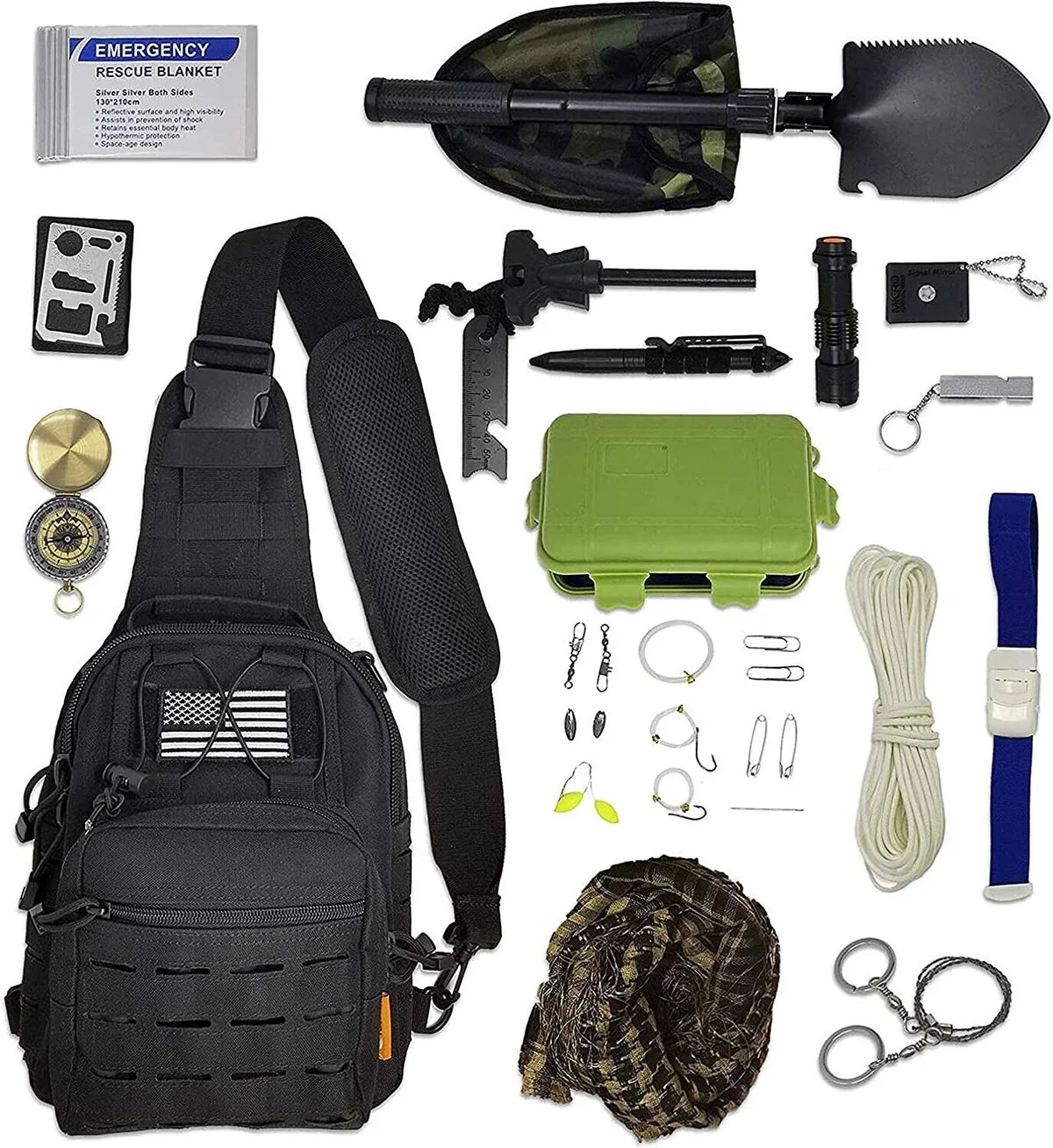Camping is a wonderful way to escape the hustle and bustle of everyday life and experience nature in its purest form. But to truly enjoy the adventure, the right camping gear is crucial. But what should you look for when choosing your gear? In this article, we'll walk you through everything you should consider when choosing the best camping gear .

The importance of the right camping equipment
Why is good camping equipment essential?
Imagine you're in the middle of the wilderness, the sun is setting, and you realize your tent isn't weatherproof or your sleeping bag isn't warm enough. Suddenly, a pleasant adventure turns into an unpleasant experience. Good camping gear will protect you from the elements and ensure you feel comfortable in nature.
How does equipment affect the camping experience?
The gear you choose will directly impact your camping experience. A comfortable tent, a warm sleeping bag, and a reliable cooking stove can mean the difference between a great trip and an unpleasant night. It's not just about comfort, but also about safety.
The most important equipment for every camper
Tents – protection from the elements
A good tent is the be-all and end-all of any camping gear. It provides protection from rain, wind, and cold, creating a safe haven in nature.
What types of tents are there?
There are various types of tents that vary in size, weight, and construction. From ultralight one-person tents for trekking tours to spacious family tents—the choice is vast.
How do you choose the right tent?
Choosing the right tent depends on several factors, such as the number of people who will be sleeping in it, the weather you expect, and the terrain you'll be camping in. Make sure the tent is waterproof and has a stable base.
Sleeping bags – comfort in nature
A good sleeping bag will keep you warm and ensure a restful sleep, even when the temperatures drop.
Temperature ranges and insulation
Sleeping bags are designed for different temperature ranges. Make sure the sleeping bag is suitable for the lowest temperatures you expect. Insulation is crucial here.
Materials and fillings
Sleeping bags can be filled with down or synthetic materials. Down offers excellent warmth but is more sensitive to moisture. Synthetic fillings, on the other hand, are more durable and dry faster.
Sleeping mats and air mattresses – For a good night’s sleep
Sleeping mats and air mattresses provide additional comfort and insulation from the cold ground.
Differences between sleeping mats and air mattresses
Sleeping pads are lighter and more compact, while air mattresses offer more comfort but are also heavier. Both have their advantages and disadvantages, depending on the camper's needs.
Which one is suitable for which conditions?
For trekking tours, sleeping mats are often the better choice because they are lightweight and space-saving. For car camping, air mattresses offer more comfort, as weight is less of an issue.

Cooking and eating outdoors
Camping stove – efficiency and simplicity
A camping stove is an indispensable tool for preparing hot meals in nature.
Different types of camping stoves
There are gas, petrol, and spirit stoves, each with its own advantages and disadvantages. Gas is easy to handle, petrol is more readily available in many countries, and spirit stoves are particularly safe.
Fuel types and their advantages and disadvantages
Gas is clean and easy to ignite, gasoline offers high heating performance, and spirit is environmentally friendly and safe. The choice of fuel depends on conditions and availability.
Tableware and utensils – light and practical
For outdoor cooking, lightweight and compact tableware is a must.
Materials and their properties
Aluminum or titanium dinnerware is lightweight and sturdy, while stainless steel is durable and easy to clean. Choose the material that best suits your needs.
Compact and versatile – what is important?
Make sure your dinnerware is stackable and versatile. This will save space and weight in your backpack.

Clothing and protection
Clothing layers – prepared for any weather conditions
The layering system is the key to optimal comfort and protection from the elements.
The importance of breathable fabrics
Breathable fabrics allow moisture to escape and keep you dry, which is especially important when you're traveling in cold or humid environments.
Essential clothing for any weather
A good base layer, an insulating midlayer, and a waterproof outer layer are essential. Don't forget a hat and gloves, too.
Rain and sun protection – indispensable companions
Weather changes can happen quickly, so it's important to be prepared for anything.
Waterproof jackets and trousers
Invest in a high-quality waterproof jacket and pants that will keep you dry even in heavy rain.
Headwear and sunscreen
A hat protects you from the sun, and sunscreen prevents sunburn, which can be unpleasant.
Safety and emergency equipment
First aid kit – a must for every camper
Accidents can always happen, so a well-stocked first aid kit is essential.
What should be included in a first aid kit?
A first aid kit should contain bandages, antiseptic wipes, painkillers, and special equipment such as a rescue blanket.
Navigation aids – Always find the right way
In nature, it's easy to get lost. This is where navigation aids come into play.
Compass and map versus GPS
A GPS device is useful, but never rely on it exclusively. A compass and a map should always be with you in case your technology fails.
Conclusion
Summary of the main points
Choosing the right camping gear can make the difference between a successful and a frustrating camping trip. Pay attention to the quality, practicality, and weather resistance of the gear.
Personal tips for camping equipment
Plan ahead, test your gear before using it for the first time, and invest in long-lasting products that will last you through many camping trips.
Frequently Asked Questions (FAQs)
-
How important is choosing the right camping equipment?
The right equipment is crucial to ensure safety, comfort and an enjoyable experience in nature. -
Which tent is best for beginners?
For beginners, lightweight, easy-to-set-up tents that offer sufficient protection are ideal. -
How do I choose the right sleeping bag?
Choose a sleeping bag based on the lowest temperatures you expect and pay attention to the filling material. -
Do I really need a sleeping mat?
Yes, a sleeping mat provides insulation against the cold ground and significantly increases sleeping comfort. -
What should not be missing from my first aid kit?
A well-stocked first aid kit should contain bandages, antiseptic wipes, painkillers, and a rescue blanket.

